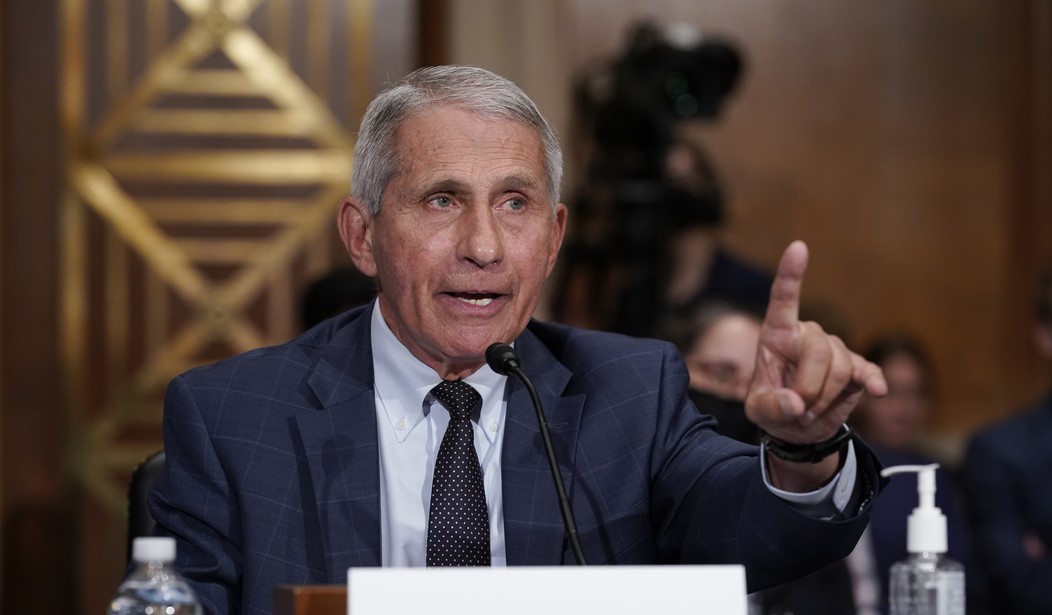As Micah covered earlier, Fox News host Jesse Watters did, in fact, not call for violence against Dr. Anthony Fauci when he called on people to ask the doctor "kill shot" questions. Yet, Fauci still called on Fox News to fire Watters, as he's called on the firing of other people.
Here's how Micah explained it:
But what about Watters' mention of a "killshot"?
Think of all the times politicians are confronted by reporters and badgered with questions that they brush off or deliver incoherent responses to before ignoring the most important question from the reporter before slipping into a waiting vehicle and driving away or escaping behind closed doors.
The "killshot," as Watters describes it, is that final question the interviewer asks the caught-off-guard interviewee that is either impossible for them to answer or one the interviewer knows they will refuse to address. It is the toughest question, backed up by facts, that will leave an interviewee panicked and looking for an exit.
Yet, CNN wouldn't even air the clip of the remarks – doing their viewers a great disservice – when host John Berman asked Dr. Fauci about it. Naturally, Fauci called on Watters to "be fired on the spot."
As Micah also addressed, Fox News is standing by Watters.
Ron Filipinski, who claims to do "Tracking and Reporting on Right-Wing Extremism," posted a version of the clip, freaking out about "incendiary, dangerous, violent rhetoric."
But, as Carmine Sabia, managing editor of The Federalist Papers, shared in response to Filipinski, Snopes rated it as "False" when addressing "Did Jesse Watters Call for Fauci's Assassination?" As Dan Evon wrote in the fact-check, "The context of Watters' remarks does not support the allegation that he literally urged people to kill Fauci."
You lied. https://t.co/Ib5hkoZERb
— Carmine Sabia (@CarmineSabia) December 21, 2021
Recommended
Fauci's remarks for calling on Watters to be fired are even more noteworthy and inappropriate, considering he is an employee of the federal government. Even worse is that there also appears to be selective outrage.
During the Trump administration, ESPN's Jemele Hill sent out multiple tweets accusing Trump of being "a white supremacist," which then-White House Press Secretary Sarah Huckabee Sanders said, "Certainly is something that is a fireable offense by ESPN."
John Haltiwanger, writing for Newsweek, addressed the remarks in the context of questioning if Huckabee Sanders actually broke the law. "Did Sarah Huckabee Sanders Break Law With Jemele Hill Statement? Former Government Ethics Chief Weighs In," his headline read.
That government ethics chief in question was Walter Schaub, who, in what appears to be a now-deleted tweet, discussed an "interesting law on the books."
As Haltiwanger mentioned in his reporting:
Subsequently, Shaub tweeted an "interesting law on the books."
This law essentially states certain government employees -- including the president, vice president and "any other executive branch employee" -- are prohibited from influencing the employment decisions or practices of a private entity (such as ESPN) "solely on the basis of partisan political affiliation."
Breaking this law can lead to a fine or imprisonment up to 15 years -- possibly both -- and could lead to disqualification from "holding any office of honor, trust, or profit under the United States."
But the specific language of the law he tweeted "doesn't criminalize today's remarks" because Sanders' comment wasn't "solely" related to partisan political affiliation, Shaub explained. "But it certainly highlights the inappropriateness of using federal authority to influence private employment decisions. Another important norm down the drain," he added.
Shaub, who was the director of the United States Office of Government Ethics from January 9, 2013, to July 19, 2017, in his own words, called out Sanders for how she "certainly highlights the inappropriateness of using federal authority to influence private employment decisions."
While it does not appear that Fauci called for Fox to fire Watters "solely on the basis of partisan political affiliation," it still ought to raise eyebrows that as a government employee, he'd be trying to influence a private entity in such a way.
Shaub has not tweeted about Fauci's remarks, though he did tweet on Tuesday that he is "taking a short break from Twitter."
Townhall reached out to Shaub on Twitter but has not heard back. This piece will be updated should he respond.

























Join the conversation as a VIP Member